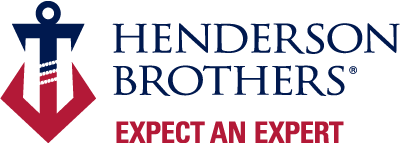Employers have been surprised to hear that certain employee pay-all voluntary plans are subject to the new ACA employer W-2 reporting requirement, specifically individual hospital indemnity and specified illness policies that are 100% paid by the employee through salary reduction (pre-tax) contributions. Our discussions with customers about the new ACA W-2 requirement often lead us into a conversation as to whether these voluntary plans, along with other similar products, are subject to ERISA as well.
DOL Safe Harbor
The Department of Labor provides a safe harbor under which ERISA does not apply to certain voluntary insurance plans. The insured plans must meet several specific requirements in order for them to be exempt from ERISA, most important of which they must be established as a 100% employee pay-all arrangement and the employer must have very minimal involvement. Determining whether the DOL voluntary plan safe harbor applies is not always easy and we strongly suggest that before an employer devotes time and resources to study the safe harbor, it should be determined whether avoiding ERISA’s application is a priority. It may be decided that treating a voluntary arrangement as subject to ERISA is easier than worrying about whether an arrangement fits within the voluntary plan safe harbor or will remain within the safe harbor as it is administered over time.
A plan that is to avoid ERISA’s application must qualify for the voluntary plan safe harbor at the time of implementation and while it is administered over time. The safe harbor applies only if the plan is completely voluntary – i.e., the employer contributes nothing to the premium. Minimal employer involvement may include:
- Permitting the insurer to publicize the plan
- Collecting premiums through payroll deductions
- Remitting the premiums to the insurer
It is very important to understand that employers must perform the functions listed above without endorsing the plan in any way.
There are several reported cases and DOL opinion letters that are difficult to reconcile, specifically regarding what constitutes “employer endorsement.” Certain actions taken by the employer could be construed as an endorsement of the plan, bumping the voluntary program outside the safe harbor.
These actions include:
- Assisting employees in filing claims under the voluntary plan,
- Assisting with disputes
- Listing the plan in materials along with employer-sponsored ERISA benefits
- Taking credit for arranging the plan
While any one of these activities might not be enough on its own to take the plan out of the safe harbor, each one in isolation or in combination could create doubt about the safe harbor’s application. One activity in particular, allowing employees to pay their premiums for the voluntary plan through the employer’s cafeteria plan, has always presented a particular risk. Beginning in 2014 this activity seems even more problematic as a result of Health Reform and its prohibition on pre-tax premium payments for certain individual health policies. Under the rationale of the agency guidance provided along with the new ACA rule, allowing pre-tax premium payment for individual policies (of any type, not only health coverage) will likely take the arrangement outside the DOL safe harbor. Employers that continue with this practice of allowing employees to pay for these products with pre-tax salary reductions should be prepared to treat these plans as ERISA plans.
Please note that the information contained in this document is designed to provide authoritative and accurate information, in regard to the subject matter covered. However, it is not provided as legal or tax advice and no representation is made as to the sufficiency for your specific company’s needs. This document should be reviewed by your legal counsel or tax consultant before use.
Additionally, the messages and content within the Pittsburgh Health Care Reform group do not reflect the advisory services of Henderson Brothers, Inc.


